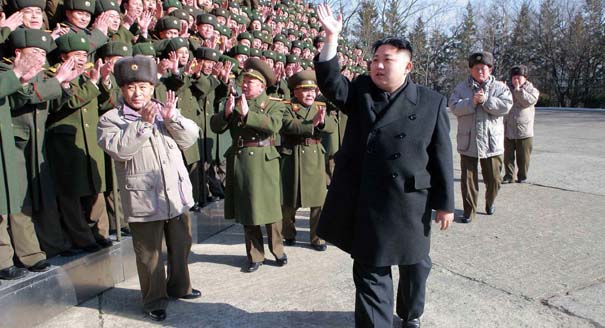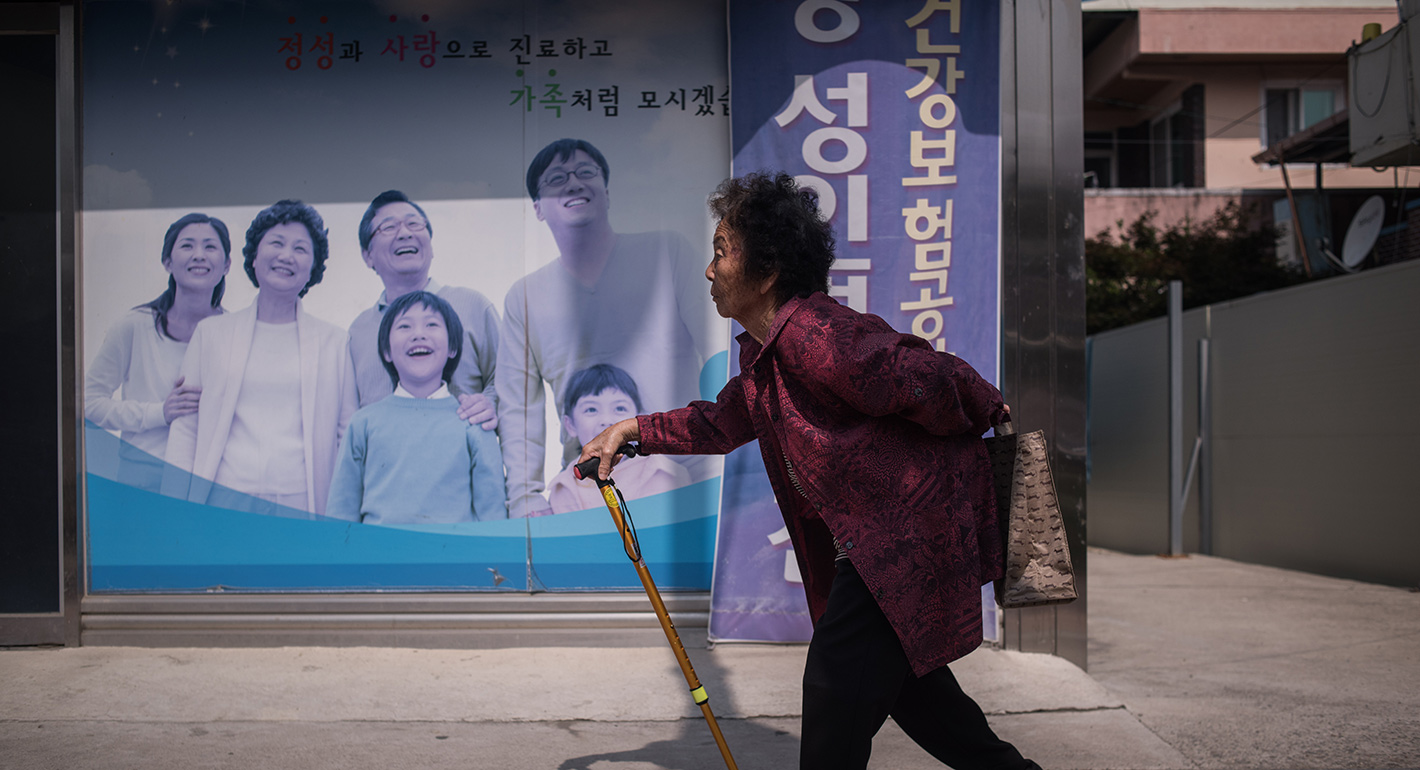Lora Saalman
{
"authors": [
"Lora Saalman"
],
"type": "legacyinthemedia",
"centerAffiliationAll": "dc",
"centers": [
"Carnegie Endowment for International Peace",
"Carnegie China"
],
"collections": [
"Korean Peninsula"
],
"englishNewsletterAll": "",
"nonEnglishNewsletterAll": "",
"primaryCenter": "Carnegie China",
"programAffiliation": "NPP",
"programs": [
"Nuclear Policy"
],
"projects": [],
"regions": [
"East Asia",
"North Korea"
],
"topics": [
"Nuclear Policy",
"Arms Control",
"Security"
]
}
Source: Getty
How Big a Threat is North Korea’s Nuclear and Space Program?
North Korea has vowed to continue expanding and strengthening its 'self-defensive military power' to cope with sanction pressures.
Source: Voice of Russia

Lora Saalman: As you’ve mentioned I don’t think that it really surprises anyone, particularly given the overall environment in which North Korea exists. Now, of course when we look at the North Korean environment as it exists today, it is not just an issue of the international security environment, but also of the domestic situation. And I would say that many of the things that we see occurring we have to also think of the domestic audience within North Korea, it is not just foreign external audience.
So, the strong reaction also needs to be categorized and the fact that they have a new leader who is also very young, who is also trying to prove his mettle vis-à-vis the military community within his own country and also trying to demonstrate that North Korea can undertake a very strong reaction and stand up against the pressure from the outside world, particularly from the US.I was a little bit surprised by the reaction of the Chinese media. I think the bit of news I have seen on the Chinese Radio International was rather strong worded, I’d say. And this was a little bit unexpected to me. They are saying that if North Korea holds true on its position to withdraw from its previous agreements – that would mark the biggest setback in a diplomatic rapprochement in a decade. Would you agree with this assessment?
I think from the Chinese perspective what we are seeing here is also to a degree has its domestic and external motivations. I think from the Chinese perspective of course, they have been pushing all along for the importance of returning to the negotiating table, the importance of the six-party talks.
And so this has been one of their major talking points all along, when any other country have excoriated North Korea and said that it doesn’t have a commitment to denuclearization or to the multiparty process, China has always brought up this idea that if they return to the negotiating table or if they will be willing to give some way North Korea would return.
The fact that North Korea wants to walk away from everything would of course be a major blow, particularly to the kind of diplomacy that China has been engaged in and also to its role as a mediator within this entire North Korean nuclear issue.
There was a word which looked a key word to me, which was “if”. As far as I understand North Korea has been rather demonstrative in what had anything to do with their nuclear program. Remember they invited an American scientist and they showed him all the centrifuges. They were kind of acting like to show the international community that they would be dangerous adversaries to deal with. How much substance do you think this time there is to that statement?
Well, I think that actually when they were willing to reveal the fact that they had centrifuges to Siegfried Hecker, that was the scientist who went there, actually it depends on your perspective. I think that there was a veiled threat aspect to that, but as well there was a certain degree to which they were actually being transparent, which of course is what the international community is constantly pushing North Korea to be.
So, it is very hard to say one way or the other. It is a veiled threat and it is at the same time they actually engaging in behavior that the international community would like to see. If they have this program, then of course they may let everyone know and this is actually a form of mutual reassurance.
I do think however that we have to take them seriously on such threats. For example, when they talk about significant action or that they might engage in some form of significant action after the UN Security Council resolution has emerged – I do think that the likelihood of them for example conducting another nuclear test is extremely high.
But once again, I don’t know that this necessarily violates or is in discordance with their past behavior. We saw this in 2006 after a missile test, we saw it in 2009 after a missile test. And of course their current commitment, the UN Security Council resolution set forward all of those activities. So, I think that actually they’ve been extremely consistent all the way through. And so, if anything I would take them on the word if they say that they are going to do something or engage in some form of somewhat provocative behavior.
Which stance would you suggest as the most sound in regards to North Korea after that statement?
Lora Saalman: Well, I think one of the big steps forward and one of the things which will probably bolster the international community is the fact that both China and Russia have come forward in agreement with the UN Security Council in supporting this particular UN Security Council resolution. In the past there have been efforts by those two countries in particular to water things down or to soften the language, or to make sure that for example Chapter 7 is not involved, suggesting that there could be some form of military action.
And I think that in this particular case it does show that there is a consensus in the international community and particularly among these five members of the Security Council, that this is extremely serious.
About the Author

Former Nonresident Associate, Nuclear Policy Program
Saalman was a nonresident associate in the Nuclear Policy Program at the Carnegie Endowment for International Peace. Her research focuses on China’s nuclear and strategic policies toward India, Russia, and arms control.
- Balancing Chinese Interests on North Korea and IranPaper
- Why Beijing Stands by PyongyangIn The Media
Lora Saalman
Recent Work
Carnegie does not take institutional positions on public policy issues; the views represented herein are those of the author(s) and do not necessarily reflect the views of Carnegie, its staff, or its trustees.
More Work from Carnegie Endowment for International Peace
- Europe on Iran: Gone with the WindCommentary
Europe’s reaction to the war in Iran has been disunited and meek, a far cry from its previously leading role in diplomacy with Tehran. To avoid being condemned to the sidelines while escalation continues, Brussels needs to stand up for international law.
Pierre Vimont
- Governing Aging Economies: South Korea and the Politics of Care, Safety, and WorkPaper
South Korea’s rapid demographic transition previews governance challenges many advanced and middle-income economies will face. This paper argues that aging is not only a care issue but a structural governance challenge—reshaping welfare, productivity, and fiscal sustainability, and reorganizing responsibilities across the state, private sector, and society.
Darcie Draudt-Véjares
- Beijing Doesn’t Think Like Washington—and the Iran Conflict Shows WhyCommentary
Arguing that Chinese policy is hung on alliances—with imputations of obligation—misses the point.
Evan A. Feigenbaum
- How Far Can Russian Arms Help Iran?Commentary
Arms supplies from Russia to Iran will not only continue, but could grow significantly if Russia gets the opportunity.
Nikita Smagin
- Is a Conflict-Ending Solution Even Possible in Ukraine?Commentary
On the fourth anniversary of Russia’s full-scale invasion, Carnegie experts discuss the war’s impacts and what might come next.
- +1
Eric Ciaramella, Aaron David Miller, Alexandra Prokopenko, …











